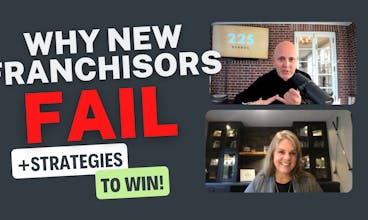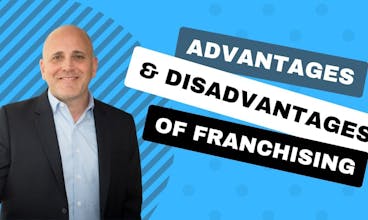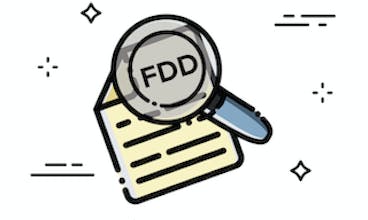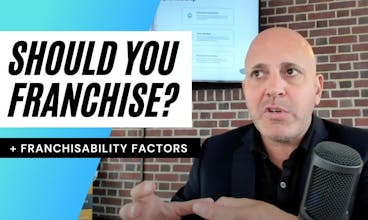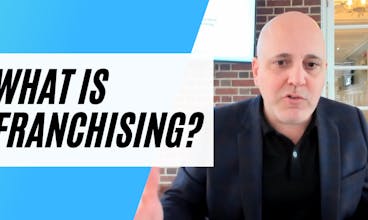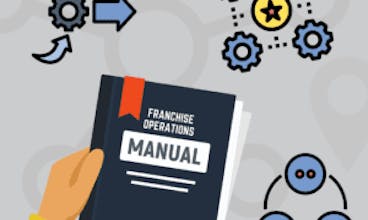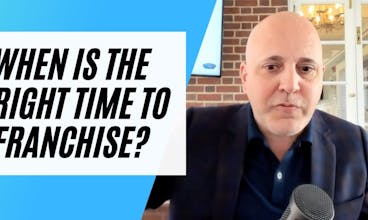How to Evaluate Franchise Investments, Buying a Franchise, and Selling Franchises
Whether you’re a franchise buyer looking for the right fit before investing in and buying a franchise or a franchisor working to tell a better story about the economic advantages of your franchise offering, it's important to understand the unit economics of franchising and the economic factors that create compelling franchise opportunities.
Follow these steps to evaluate the unit economics of a franchise opportunity and investment:
- evaluate the economic goals that the franchise opportunity offers and can support
- align the economic fundamentals of what the franchisee opportunity offers with the franchisee's economic expectations
- understand the type of income potential a franchise opportunity offers
- evaluate scalability and FDD disclosed expenses and financial data
In this guide, we’ll explore ways franchise buyers can evaluate and understand the unit economics of a franchise opportunity before investing – and ways franchisors can use unit economics to tell better stories and attract the right franchisees to their brands.
Evaluating the Economic Goals of a Franchise Opportunity
Franchise buyers invest in franchise systems to improve their lives. Whether a franchisee aspires to replace or supplement existing income, build a legacy, create generational wealth, or simply improve their lifestyle, there is an economic goal or, potential, underlying every franchise investment. As a prospective franchise buyer, investing in franchise opportunities that are aligned with your economic goals is the key to achieving them.
Franchise buyers should consider asking themselves the following questions to find the right fit for their personal goals before investing in a franchise system:
As the future owner of a franchise business, are you looking to replace your current income or supplement it?
Do you want to own a single franchise business or multiple units?
Are you looking for a lifestyle change or do you want to create generational wealth for your family by building a legacy?
Franchise buyers aren’t the only ones that can benefit from aligning their economic goals and opportunities, however. As part of the franchisee recruiting process, franchisors can also use their franchise system’s unit economics to tell a more compelling brand story that attracts like-minded candidates to their franchise systems.
Questions franchisors should consider addressing when incorporating a compelling economic story into their brand story include the following:
Who are you and what are you offering?
How do your existing franchisees perform?
What’s your estimated initial investment?
What goals are you helping franchisees achieve? Can they leave their corporate jobs or is this opportunity more for supplemental income?
Is this a business opportunity for someone looking to open multiple locations and create a legacy to hand down to future generations?
By attracting candidates whose economic goals are aligned with their franchise offering, franchisors can grow and scale their businesses while helping franchisees improve their lives.

Aligning the Economic Fundamentals of a Franchise Opportunity with Franchisee Expectations
After establishing economic goals, it’s important to evaluate the fundamental economic factors underlying a franchise opportunity and whether or not they align with franchisee goals. For both franchisor and franchisee, before signing a franchise agreement, you must ensure that there is a good fit between franchisee goals and expectations with the franchise offering. By considering the economic building blocks of a franchise offering, franchise buyers and franchisors can ensure their goals are aligned.
Estimated Initial Investment
Rather than limiting investment options to preferred industries, prospective franchise buyers should consider evaluating franchise opportunities based on their estimated initial investment cost. By considering offerings within a specific initial investment range, buyers can maximize their options while using capital more wisely.
When developing their unit economic story, franchisors should also keep their estimated initial investment costs in mind. By remembering that their main competitors aren’t necessarily just brands within their industry but also brands within their investment range in any industry, franchisors can shape sales strategies and recruit franchisees more effectively.
Scalability
Although purchasing multiple units upfront might not be a franchise buyer’s initial goal, it’s important to have an idea of whether scalability is important for achieving future goals. As a franchise buyer, if having the opportunity to purchase additional units and expand your territory is important, make sure to consider offerings that allow successful franchisees the chance to scale.
Personal Goals
Like franchise systems, no two franchise buyers are the same – each one has specific needs to address and goals to address. When evaluating franchise offerings, franchise buyers need to ensure the brand is a good fit for their individual goals.
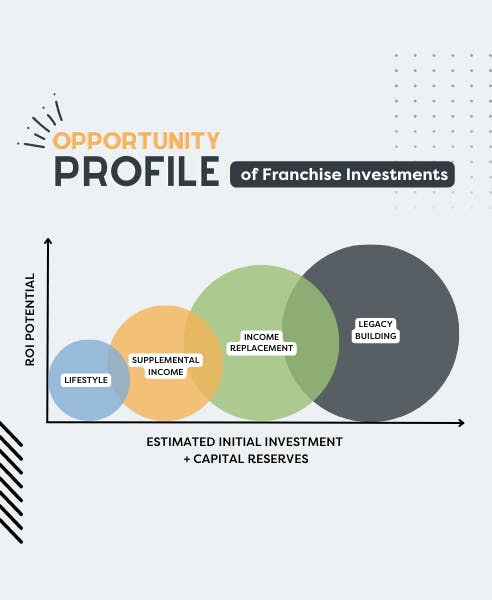
Understanding the Type of Income Potential a Franchise Investment Offers
In addition to the unit economic building blocks of a franchise investment, another important factor to consider when evaluating a franchise system is the offering’s opportunity profile – that is, the specific income goals that franchise buyers can achieve. Although a franchise offering’s opportunity profile is often tied to its estimated initial investment, it usually includes other important factors like the potential for achieving lifestyle goals and legacy-building opportunities.
Estimated Initial Investment, Reserve Capital and ROI Potential
Typically, opportunity profiles fall across a spectrum defined by an offering’s unique advantages. Often this includes factors like the estimated initial investment, reserve capital requirements and return-on-investment (ROI) potential. These guideposts can help franchise buyers and franchisors determine whether an offering is a good fit for both parties.
Lifestyle
On one end of the opportunity profile spectrum lies lifestyle-based franchise opportunities. Typically, these businesses have lower startup costs and are designed to help franchise buyers achieve certain lifestyle goals related to income supplementation – that is, the ability to increase one’s income through franchising without quitting an existing career. Many home-based businesses and some service businesses fall into this category.
Legacy-Building
On the other end of the opportunity profile spectrum are legacy-building opportunities. Usually, these are brick-and-mortar retail businesses with an average estimated initial investment cost of around $500,000. Despite their higher startup costs, legacy-building offerings often boast advantages like a higher ROI, scalability and the potential for income replacement – that is, the ability to leave a career and work full-time in the franchise business.
Evaluate Scalability and FDD Disclosed Expenses and Financial Data
When it comes to making wise franchise investments – and attracting buyers that are a good fit – it’s important to understand a franchise system’s unit economics story. By knowing what to expect before signing a franchise agreement, franchise buyers and franchisors can feel confident about achieving their common economic goals together.
Evaluating Scalability
Before investing in a franchise, prospective buyers should consider whether scalability is an option that’s important to them. Although not every franchisee wants to scale, having an option to purchase additional units and expand into new territories is often a key economic goal for successful franchisees looking to build a legacy and create generational wealth in the future.
When evaluating the potential for scalability within a franchise system, consider the following:
Is multi-territory expansion an option within the franchise system?
What role do employees play in the franchise?
Are franchisees required to be owner-operators?
What are the unit economics for existing multi-unit franchises within the system?
By ensuring that scalability opportunities are clearly understood, franchise buyers can determine whether a franchise investment is a right fit for their long-term economic goals.
The FDD and Economics
Apart from the legal disclosure requirements governing the Franchise Disclosure Document (FDD), the FDD also provides an excellent chance for franchisors to tell a compelling economic story about their franchise system – and attract franchise buyers whose financial goals align with the opportunity being offered.
Franchise buyers can benefit enormously from reviewing the FDD with a qualified franchise attorney. In particular, prospective franchisees should spend time evaluating a few specific FDD disclosure items in-depth to ensure the offering is the right fit for their current financial situation and future goals.
Item 5: Initial Fees
FDD Item 5 provides important information about the franchise offering’s initial fees. An initial franchise fee is a fee that franchisees must pay to franchisors when they purchase a franchise. Its purpose is to compensate franchisors for the license granted to the franchisee to use the franchisor’s trademarks, systems and processes, and to reimburse the franchisor for costs associated with administrative tasks and pre-opening support.
The disclosure item’s purpose is to help prospective franchisees evaluate the costs associated with buying a franchise before entering into an agreement with a franchisor. In addition to the initial franchise fee, Item 5 disclosures include installment payments and other upfront pre-opening fees like training and onboarding.
The fees disclosed in Item 5 will depend on the number of territories purchased by the franchise buyer. Although it can be tempting to purchase multiple territories upfront, sure franchise buyers should be properly capitalized before purchasing multiple units. If funding is a concern, consider investing extra capital into initial marketing efforts while saving multi-unit expansion for the future.
Item 6: Other/Recurring Fees
Item 6 of the FDD is intended to help franchise buyers fully understand any additional costs and recurring fees associated with opening and operating a franchise business. Its disclosures contain information about fees including ongoing royalties, recurring fees, additional training, brand development funds, technology, marketing and more – all factors franchise buyers should pay close attention to.
Technology Fee and Competitive Advantages
Often, franchisors will include a technology fee in Item 6 of the FDD. This fee covers the cost of technology and equipment used in the daily operations and/or productions of the franchise business. This includes but is not limited to computers, cash registers, machinery and more.
Although additional fees might not seem exciting to prospective buyers, they can be well worth the investment if they offer competitive advantages. When evaluating technology fees, franchise buyers should consider the advantages and whether the ROI is worth it. For example, many franchise systems utilize call centers to keep up with a high volume of inquiries – an advantage that can set their business apart from competitors in terms of customer service.
Local Marketing Obligation
Franchisors often require franchisees to spend a specific amount of money, either monthly or quarterly, on local marketing that is separate from the franchise brand development fund. Usually, this fee amounts to either 2% of the franchisee’s gross sales or a fixed dollar amount. Although mandatory marketing fees might seem burdensome at first glance, franchise buyers should remember that investing in marketing offers the advantage of generating new business and increasing revenue.
Item 7: Initial Investment
Item 7 of the FDD includes disclosures related to the total initial investment cost of buying and opening a franchise business. This includes the initial franchise fee, training, real estate costs, equipment costs, construction, initial inventory and many other expenses.
In addition to pre-opening and startup fees, Item 7 also includes disclosures about a mandatory expense called “reserve capital.” Typically, reserve capital amounts to three months of capital that a franchisee should have access to after opening. These reserves are meant to help the franchisee cover business and living expenses during the three months before the business ideally turns a profit. However, it’s advisable for franchise buyers to have at least six months of reserve capital before signing a franchise agreement.
Item 19: Initial Performance Representations
FDD Item 19 contains important disclosures about the financial performance representations of a franchise system. Under the federal Franchise Rule, financial performance representations are defined as: "Any representation, including any oral, written, or visual representation, to a prospective franchisee, including a representation in the general media, that states, expressly or by implication, a specific level or range of actual or potential sales, income, gross profits, or net profits. The term includes a chart, table or mathematical calculation that shows possible results based on a combination of variables."
The disclosures in Item 19 include a historical perspective about how franchisees, or the franchisors’ company or outlets, have performed financially over time. This information is valuable for prospective franchise buyers, as it can help them get an idea about the offering’s cash flow potential.
When reviewing Item 19, prospective buyers should avoid looking only at data about the system’s top-performing franchisees. Instead, make sure to evaluate average and bottom-level performers in the system to get a well-rounded understanding of the franchise system’s unit economics.
Every Fee has an ROI Story Behind it
Franchise buyers need to remember that the fees associated with buying and operating a franchise business shouldn’t be considered an expense. Rather, fees should be considered an investment that gains value and helps the business thrive.
By taking the time to communicate and understand the unit economics behind franchise systems – including the benefits of recurring fees – franchise buyers and franchisors can grow and thrive while improving their chances of achieving common economic goals together.
